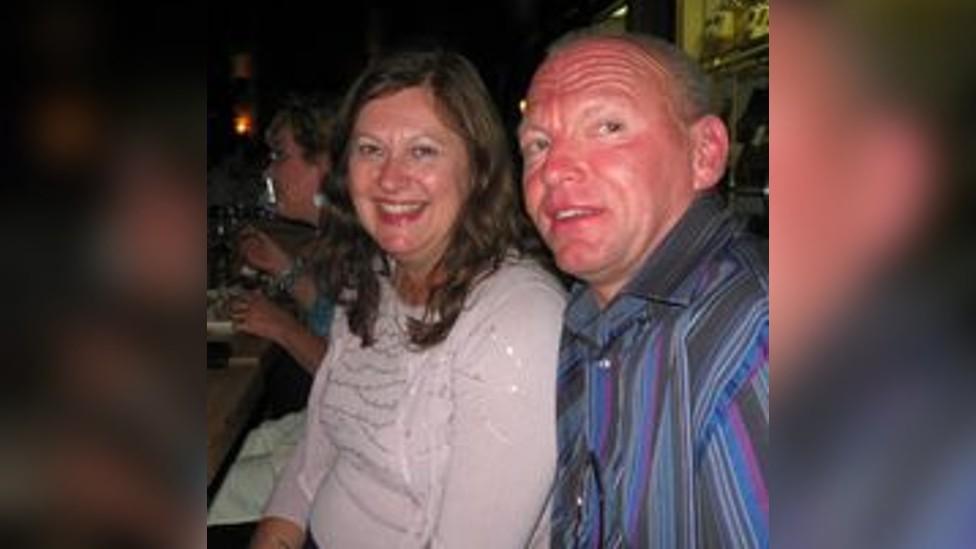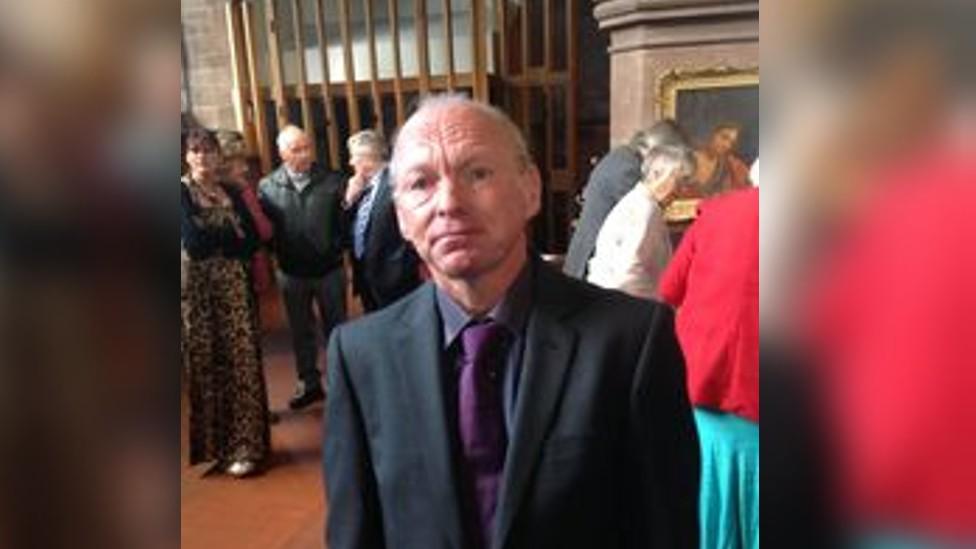Olmsted Syndrome: Genetic test changed life of man with rare disease
- Published

Alan is married to Susan, who he said has given "great support"
A man with a rare skin condition said genetic testing changed his life after he finally received a diagnosis.
Alan Bentley, 63, discovered he had Olmsted Syndrome, which causes abnormal skin growth, nine years ago.
He spent most of life not knowing what the painful condition was, struggling so much that he contemplated suicide.
Genetic testing led him to get proper treatment and now Mr Bentley, of Leek, Staffordshire, is urging others not to suffer in silence.
Olmstead Syndrome causes abnormal growth and thickening of skin, which, for Mr Bentley, results in thick callouses on the soles of his feet and "24-hour" pain.
His father, Tom, had also had the condition and Mr Bentley said he began showing symptoms at 18 months.
By the age of nine, he said, his life was "taken over by extreme pain and discomfort", which sometimes meant he would have to move around on his hands and knees.
Mr Bentley said every aspect of his life was affected, and he even decided not to have children to avoid passing his condition on.
In his mid-20s, he said, he began drinking as a way to help him sleep through the constant pain. He felt so low one day that he considered ending his life.

Alan Bentley, who had suffered with the condition throughout his life, was not diagnosed until 2013
"I remember going home, it was a lovely day, and I sat in back yard and thought, 'what's the point of this life when you're in constant pain?'," he said.
"The only thing that kept me going was that I had a wonderful family."
It was not until 2013, when his mother-in-law saw a documentary about Pachyonychia Congenita, a group of skin disorders, and suggested he go for genetic testing.
He was instead found to have Olmsted Syndrome, for which there was no treatment at the time.
But he said: "At long last I knew what it was."
'Crusade to stop suffering'
Last year he found an online article about the cancer drug Erlotinib being used for Olmstead patients.
It was sourced through a specialist and within 24 hours of taking it, Mr Bentley said he felt "wonderful".
"I took it and the following day walked half a mile to my brother-in-law's house which I never could have done before," he said.
He spoke out to mark Rare Disease Day this week, and wants people to know about the benefit of genetic testing.
"Up until few years ago, there was about 130 diagnosed, but I think there are a lot more people out there who have it and were never diagnosed correctly," he said.
"It is now my crusade to stop others from suffering."

Follow BBC West Midlands on Facebook, external, Twitter, external and Instagram, external. Send your story ideas to: newsonline.westmidlands@bbc.co.uk, external
Related topics
- Published8 June 2010